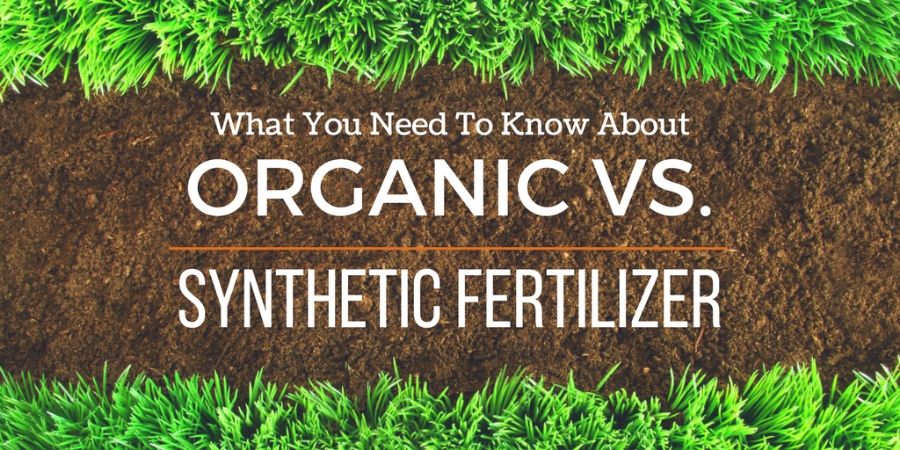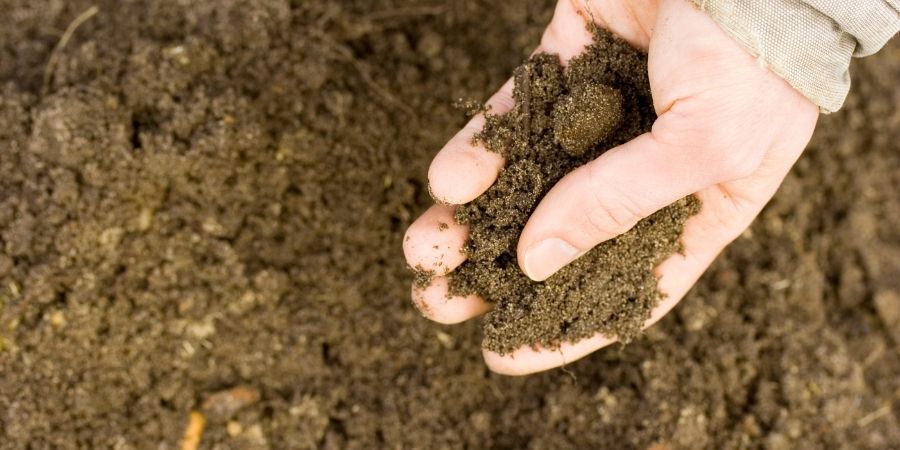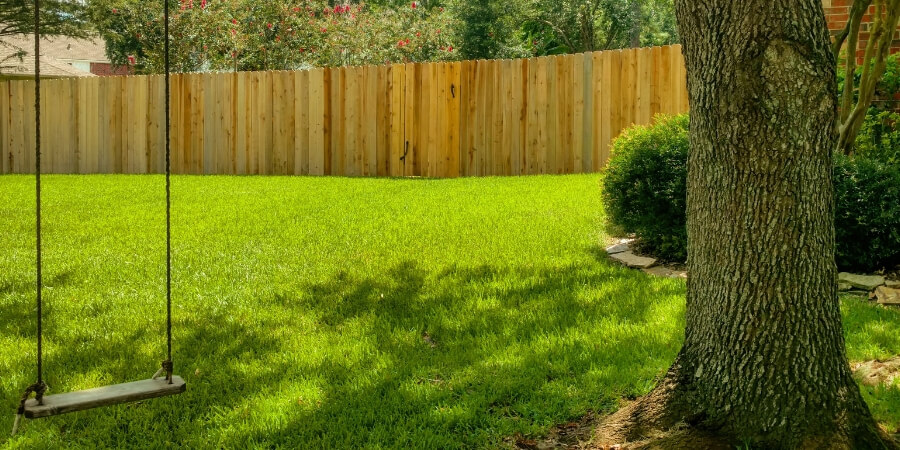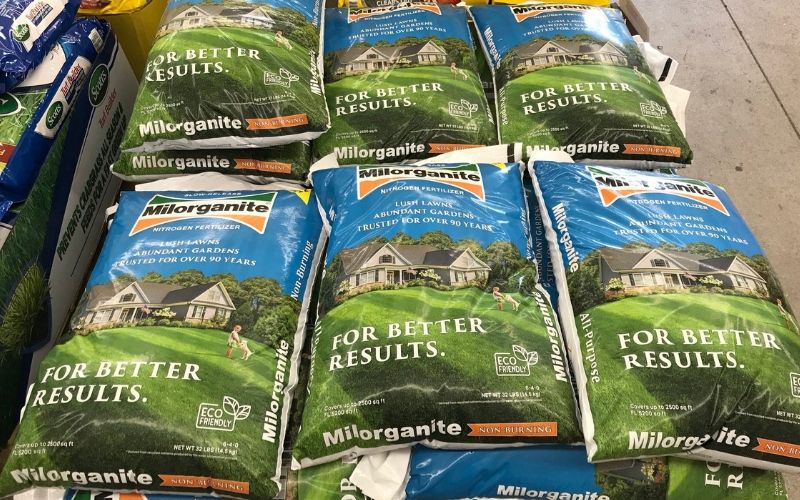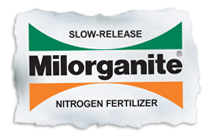Why Use Fertilizers Derived from Organic Sources?
The nutrients in fertilizers come from many sources. Synthetic fertilizers are manufactured using mined minerals, gasses from the air, and other inorganic resources. The nutrients in organically derived fertilizers are obtained from living matter, including animal waste, microbes, plants, and other natural materials. There are many benefits to using fertilizers derived from organic sources.
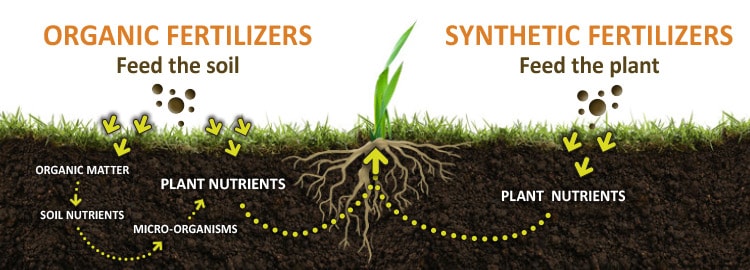
Soil is a Living Ecosystem
The key to a healthy lawn and garden is healthy soil—a living, breathing ecosystem.
The primary components of soil are minerals (inorganic materials), organic materials, water, and air. The organic matter improves the soil’s capacity to hold water and nutrients, releasing them as needed by plants. It feeds the microorganisms, which in turn makes nutrients available to plants, as well as improves the soil structure. Water makes it possible for the plants to absorb those nutrients. But that’s only the start.
A healthy soil ecosystem is teeming with beneficial bacteria, fungi, and countless microorganisms, as well as the critters we can see, like earthworms and insects.
Nutrients Released Slowly
Fertilizers derived from organic sources feed the soil, which allows the nutrients to be released slowly, at a rate consistent with what plants need, when they need it. Plants receive a well-balanced diet, including a broad range of vital, naturally occurring trace minerals and micronutrients. Nutrients released slowly stimulate consistent growth and root development and don’t need to be applied as often. Synthetic fertilizers release nutrients quickly, promoting rapid growth that is often excessive. This means you’re going to be fertilizing and cutting the lawn more often.
Fertilizer Derived From Organic Sources Won’t Burn Your Lawn
You’ve seen lawns striped with brown, dead grass. That’s chemical burn resulting from synthetic fertilizers. Fertilizers from organic sources generally won’t burn plants when used properly and don’t need to be watered-in, which can help conserve water. Nutrients in organically derived fertilizers are also less likely to leach into groundwater or contaminate waterways.
Joe Lamp’l, the host of Growing a Greener World® and one of the country’s most trusted sustainable gardening personalities, offers additional organic lawn care solutions.

